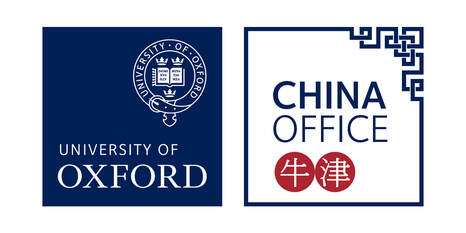Oxford China Academics

Dr. Linda Yueh is the Director of the China Growth Centre and Fellow in Economics at St Edmund Hall. She is the author of Enterprising China: Business, Economic, and Legal Developments Since 1979, The Economy of China, and Globalisation and Economic Growth in China (co-editor). She has served as Guest Editor of World Development and The Oxford Bulletin of Economics and Statistics. She is currently editing a four volume series on China and Globalisation. She is also the Series Editor for the Series on Economic Growth and Development for Routledge. Her forthcoming book is China's Economic Growth.
When I first began researching China, it was a subject for those interested in development economics or transition countries. How quickly things have changed! Now, following the pronouncements on the RMB or purchasing Western government debt generates the same fervour as the decisions of the U.S. government or European Central Bank.
For me, as it is with many academics, the world moves around us and we could suddenly find that what we work on is of greater interest than just in the halls of the university. And thus I have enjoyed founding and directing the China Growth Centre at St Edmund Hall, Oxford University, to pursue research on the most exciting economy in the world.
The widespread interest in better understanding this complex economy has also led to opportunities to advise policymakers in Beijing, Brussels, London and Washington on the reforms that can help the country continue to grow and realise its potential.
My latest book, Enterprising China: Business, Economic, and Legal Developments since 1979, is borne out of these policy interactions as well as drawing together years of research that crosses disciplines -- which is most useful for a country that is still in the midst of a challenging journey to sustain its remarkable growth.
And, it was a project that brought together an excellent research team in the China Growth Centre that too crossed fields. Economic researchers worked on the quantitative elements, while postgraduates from Chinese studies undertook research on original case studies that use the experience of businesses to illustrate the tremendous changes in China over the past 30 years of the reform period. Conferences such as with the China Center for Economic Research at Peking University also provided ideal forums to showcase the work of our Centre and hear the latest interests of scholars from around the world. These are always concluded, of course, by ample Chinese banquets and high table dinners.
Researching the book also involved many delightful trips to the country itself. The pace of change never fails to astound me. That and the fact that I am perpetually lost because construction is so rapid that landmarks that I use for navigation often disappear behind a new building! There is nothing quite like spending time in China to gain a flavour of the issues and discussions under debate for the country. Frankly voiced and ably presented at forums and private meetings, I am always struck by the passion and engagement of the Chinese in the fate of the country. This certainly extends to students, including the ones who come and spend time studying with us at Oxford.
The amount of interest among both postgraduate students working on theses related to China and undergraduates who have chosen to study China as an options paper has certainly risen over the past few years. The tutorial setting means that undergraduates receive a level of attention usually associated with graduate supervision -- and only rarely does a student regret that scrutiny of their essay (which can happen once in a blue moon)! It's a pleasure for me to tutor such bright students on a subject that I am passionate about.
As I alluded to earlier, the interest in China means that a don's days are no longer just centred on tutorials and research. But, in my case, acting as a correspondent for Bloomberg TV, lecturing at other universities, speaking at international business forums, and advising governments and other bodies (such as the World Bank, European Commission) are all part of what I do over a term. In return, my knowledge is enriched; and if I can in turn add to the discourse on China, then I feel that I will have contributed a little bit to the understanding of a complex country.
I am drafting this piece having just given a lecture to executive education students from the business school at Peking University. Seasoned business professionals, they were engaged and engaging as we conversed through my lecture on China and its global integration. By the end, which I also felt whilst writing my book, I note that there is still much to learn about China. So, after I finish writing this column, I shall return to composing notes for my next book on China's economic growth also to be published by Oxford University Press.
--- Written in September 2012 ---
When I first began researching China, it was a subject for those interested in development economics or transition countries. How quickly things have changed! Now, following the pronouncements on the RMB or purchasing Western government debt generates the same fervour as the decisions of the U.S. government or European Central Bank.
For me, as it is with many academics, the world moves around us and we could suddenly find that what we work on is of greater interest than just in the halls of the university. And thus I have enjoyed founding and directing the China Growth Centre at St Edmund Hall, Oxford University, to pursue research on the most exciting economy in the world.
The widespread interest in better understanding this complex economy has also led to opportunities to advise policymakers in Beijing, Brussels, London and Washington on the reforms that can help the country continue to grow and realise its potential.
My latest book, Enterprising China: Business, Economic, and Legal Developments since 1979, is borne out of these policy interactions as well as drawing together years of research that crosses disciplines -- which is most useful for a country that is still in the midst of a challenging journey to sustain its remarkable growth.
And, it was a project that brought together an excellent research team in the China Growth Centre that too crossed fields. Economic researchers worked on the quantitative elements, while postgraduates from Chinese studies undertook research on original case studies that use the experience of businesses to illustrate the tremendous changes in China over the past 30 years of the reform period. Conferences such as with the China Center for Economic Research at Peking University also provided ideal forums to showcase the work of our Centre and hear the latest interests of scholars from around the world. These are always concluded, of course, by ample Chinese banquets and high table dinners.
Researching the book also involved many delightful trips to the country itself. The pace of change never fails to astound me. That and the fact that I am perpetually lost because construction is so rapid that landmarks that I use for navigation often disappear behind a new building! There is nothing quite like spending time in China to gain a flavour of the issues and discussions under debate for the country. Frankly voiced and ably presented at forums and private meetings, I am always struck by the passion and engagement of the Chinese in the fate of the country. This certainly extends to students, including the ones who come and spend time studying with us at Oxford.
The amount of interest among both postgraduate students working on theses related to China and undergraduates who have chosen to study China as an options paper has certainly risen over the past few years. The tutorial setting means that undergraduates receive a level of attention usually associated with graduate supervision -- and only rarely does a student regret that scrutiny of their essay (which can happen once in a blue moon)! It's a pleasure for me to tutor such bright students on a subject that I am passionate about.
As I alluded to earlier, the interest in China means that a don's days are no longer just centred on tutorials and research. But, in my case, acting as a correspondent for Bloomberg TV, lecturing at other universities, speaking at international business forums, and advising governments and other bodies (such as the World Bank, European Commission) are all part of what I do over a term. In return, my knowledge is enriched; and if I can in turn add to the discourse on China, then I feel that I will have contributed a little bit to the understanding of a complex country.
I am drafting this piece having just given a lecture to executive education students from the business school at Peking University. Seasoned business professionals, they were engaged and engaging as we conversed through my lecture on China and its global integration. By the end, which I also felt whilst writing my book, I note that there is still much to learn about China. So, after I finish writing this column, I shall return to composing notes for my next book on China's economic growth also to be published by Oxford University Press.
--- Written in September 2012 ---
